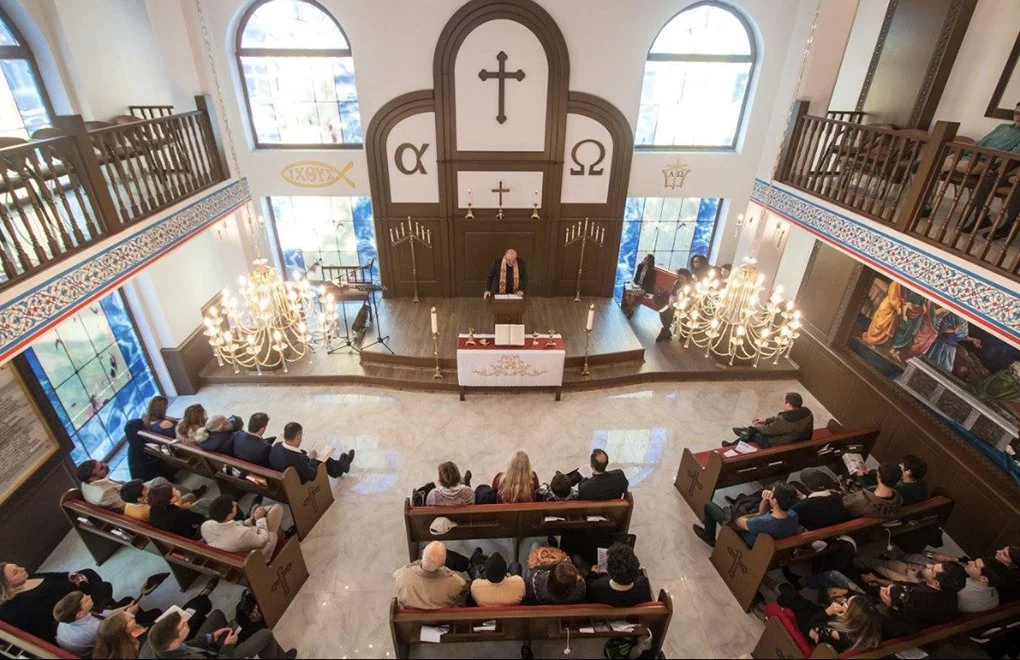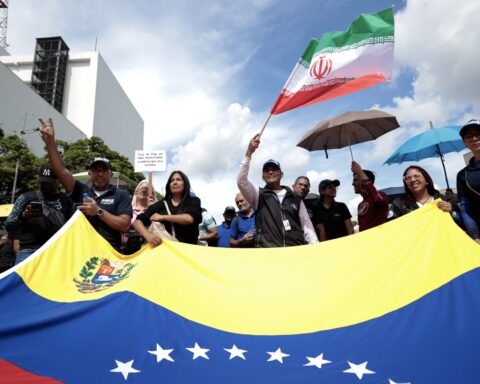Mainline Protestant denominations have been declining for sixty years and some of these denominations will not meaningfully much longer exist. But will all their congregations recede or die with them?
Perhaps not. The collapse of denominational loyalties in America may be good news for many Mainline congregations.
In the old days, many congregants were deeply committed to the denominations, reading their publications, attending their conferences, heeding their pronouncements, financially supporting them generously and appreciating the wider identity they offered, often across generations. Many congregants across decades left their Mainline denominations with sadness as those denominations further liberalized and failed to offer a compelling spiritual message. Many did not leave, but their children and grandchildren were not interested in the Mainline denominations, leaving institutional religion altogether, or joining more evangelical churches that often were nondenominational.
The membership of Mainline Protestant denominations has declined by millions, and thousands of churches have closed. Many more thousands of churches, some barely surviving with a dwindling number of elderly members, will close soon. But thousands of Mainline congregations endure. Some are vital. A few are growing. And nearly universally they have very few members who care about their denominations. These members simply like their congregations.
I attend a United Methodist congregation. Several years ago, in the wake of the schism, I had anticipated joining the new Global Methodist Church. But the GMC is not present in my area and, so far, seems uninterested in planting in new areas. Of course, I do not like United Methodism’s newly liberalized standards and much else about the denomination. But these changes seem not to affect my church. Nobody there talks about the denomination. Last year I asked our since retired pastor if anybody in the church under the age of sixty cared about the denomination. He quickly replied no. I should have asked how many over the age of sixty cared. Likely not many.
We now have a new pastor. His opening sermon series was on the Nicene Creed. Our hymns and liturgy are traditional. As a traditionalist, there’s nothing to which I can object and much to enjoy. The next pastor could be very different. But likely many even very institutionalist clergy must adapt to the new reality of denominational indifference. No more are congregations kept through automatic loyalty. They must be retained through ongoing ministry that feeds their spiritual desires.
Some Mainline clergy are stuck in old habits and still pretend we are in 1985. Their churches will fade along with the denominations. But others are wiser. I recently lunched with a young Episcopal cleric whose church is near ours. The parking lot is full on Sundays. He told me when he came there during the pandemic while the church was physically closed the old congregation melted away. The nearly 200 people there now are young and overwhelmingly indifferent to the Episcopal Church. Some are Southern Baptists. Many have children. They like having a local church with ministries for their families. He is meeting their needs. This Episcopal priest is not conservative, but he declined a liberal parishioner’s demands that he be politically outspoken from the pulpit. He knows that will not work. And it does not interest him.
Mainline churches like his and mine could hum along just fine for many years regardless of the wider direction and fate of the denominations.
In ten years, most Mainline denominations will likely still legally exist but most of them will be little more than shells. The congregations that will have survived will be indifferent and will have adapted to the new reality of post denominational America. The “end” of the Mainline may resemble the “end” of the Roman Empire, about which historians still debate. Did it end with a particular emperor? If so, people at the time likely barely noticed. Their lives continued largely as before, as others ruled where the emperor had been. And other entities claimed they were the new Rome. In one hundred years, historians of American religion will debate when the Mainline Protestant denominations ended. There might be no conclusive answer.
Surviving Mainline congregations in future years will reorganize into new networks and collaborations that we cannot now imagine. Some congregations that are dramatically heterodox will survive but most will not. They will no longer have the buffer of supportive denominational structures. Ultimately, nature reasserts itself in churches. Orthodox theology that feeds souls wins and attracts people. The artificial alternatives far less so. Denominational loyalty and money for decades delayed this reassertion of nature. But no more.
Many of us fought long battles over the Mainline Protestant denominations, just as the Roman Empire fought wars, internally and externally, across centuries to expand or to survive. But ultimately new cultures, empires and nations supplanted Rome. Protestant theological traditions will survive and adapt, even as their institutional bearers fade into the mists. “Behold, I will do a new thing, now it shall spring forth; do you not perceive it? I will even make a way in the wilderness and rivers in the desert.”
Source: https://juicyecumenism.com/2025/08/25/mainline-protestantisms-fall/






